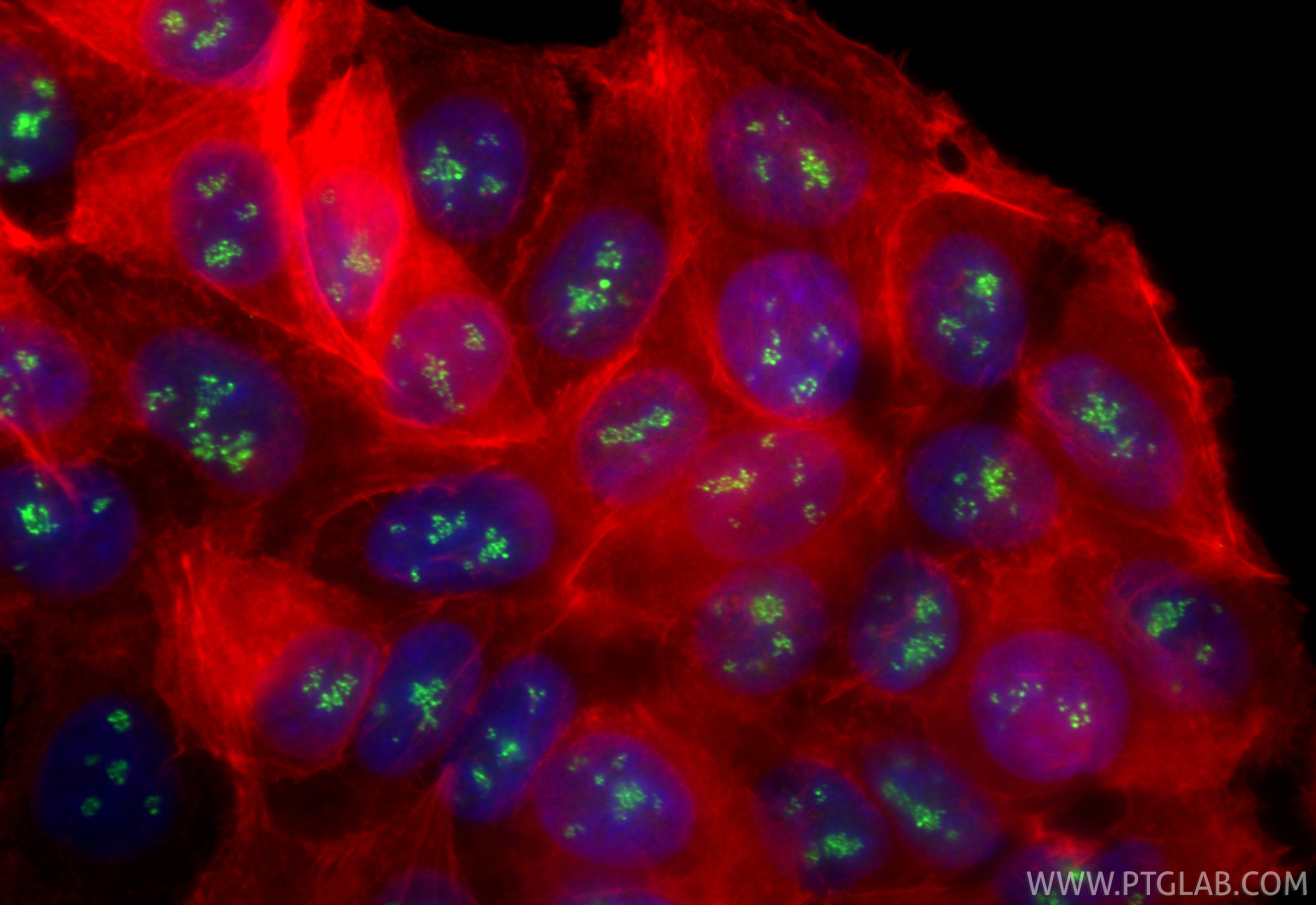Tested Applications
| Positive IF/ICC detected in | MCF-7 cells |
Recommended dilution
| Application | Dilution |
|---|---|
| Immunofluorescence (IF)/ICC | IF/ICC : 1:50-1:500 |
| It is recommended that this reagent should be titrated in each testing system to obtain optimal results. | |
| Sample-dependent, Check data in validation data gallery. | |
Product Information
CL488-84914-5 targets TCOF1 in IF/ICC applications and shows reactivity with human samples.
| Tested Reactivity | human |
| Host / Isotype | Rabbit / IgG |
| Class | Recombinant |
| Type | Antibody |
| Immunogen |
CatNo: Ag1447 Product name: Recombinant human TCOF1 protein Source: e coli.-derived, PGEX-4T Tag: GST Domain: 1-350 aa of BC014559 Sequence: MAEARKRRELLPLIYHHLLRAGYVRAAREVKEQSGQKCFLAQPVTLLDIYTHWQQTSELGRKRKAEEDAALQAKKTRVSDPISTSESSEEEEEAEAETAKATPRLASTNSSVLGADLPSSMKEKAKAETEKAGKTGNSMPHPATGKTVANLLSGKSPRKSAEPSANTTLVSETEEEGSVPAFGAAAKPGMVSAGQADSSSEDTSSSSDETDVEGKPSVKPAQVKASSVSTKESPARKAAPAPGKVGDVTPQVKGGALPPAKRAKKPEEESESSEEGSESEEEAPAGTRSQVKASEKILQVRAASAPAKGTPGKGATPAPPGKAGAVASQTKAGKPEEDSESSSEESSDSE Predict reactive species |
| Full Name | Treacher Collins-Franceschetti syndrome 1 |
| Calculated Molecular Weight | 97 kDa, 144 kDa, 152 kDa |
| GenBank Accession Number | BC014559 |
| Gene Symbol | TCOF1 |
| Gene ID (NCBI) | 6949 |
| Conjugate | CoraLite® Plus 488 Fluorescent Dye |
| Excitation/Emission Maxima Wavelengths | 493 nm / 522 nm |
| Form | Liquid |
| Purification Method | Protein A purification |
| UNIPROT ID | Q13428 |
| Storage Buffer | PBS with 50% glycerol, 0.05% Proclin300, 0.5% BSA, pH 7.3. |
| Storage Conditions | Store at -20°C. Avoid exposure to light. Stable for one year after shipment. Aliquoting is unnecessary for -20oC storage. |
Background Information
TCOF1 also known as treacle, is a nucleolar protein with a LIS1 homology domain. TCOF1 is involved in ribosomal DNA gene transcription by interacting with upstream binding factor (UBF). Mutations in TCOF1 have been associated with Treacher Collins syndrome, a disorder which includes abnormal craniofacial development(PMID: 31218872)
Protocols
| Product Specific Protocols | |
|---|---|
| IF protocol for CL Plus 488 TCOF1 antibody CL488-84914-5 | Download protocol |
| Standard Protocols | |
|---|---|
| Click here to view our Standard Protocols |




